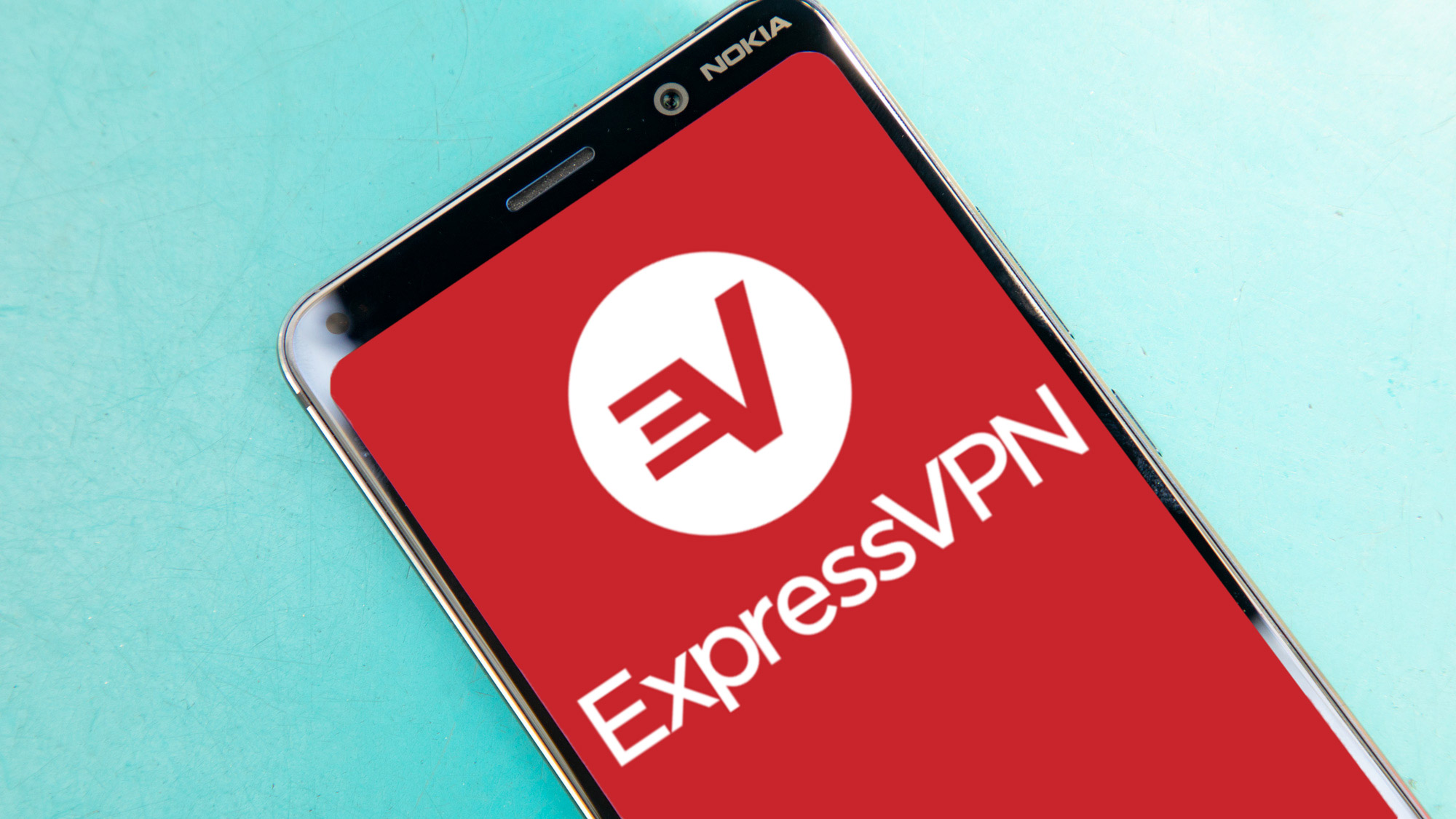Do I need to download a VPN for my Android phone?
Spoiler alert: we'd seriously recommend it

Sign up for breaking news, reviews, opinion, top tech deals, and more.
You are now subscribed
Your newsletter sign-up was successful
Most people use a virtual private network (VPN) to browse the web securely away from home and work their way around restrictions on region-specific content or websites. So it's no surprise that you might want one on your Android smartphone.
There are lots of scenarios in which you might need the best VPNs for such purposes, for example, when logging on to an unsecured public Wi-Fi network or logging into your Netflix account when abroad.
Of course, you won’t always have a laptop with you and may be carrying only your Android phone. In such cases, you might want to consider downloading any of the best Android VPN apps.
Is it worth downloading a VPN on my Android?
There are two major reasons why installing one of the best mobile VPN apps on your Android phone can be of benefit: internet security and getting around geographical restrictions.
If you travel a lot and want to enjoy your favorite streaming services, like Netflix, BBC iPlayer, or Amazon Prime while on the road, a VPN app for your smartphone could be very useful.
A good VPN app will trick the streaming service you're trying to access into thinking that you are still in a legitimate geographical location by routing your request through an intermediary server in the desired region.
Going public
Do you often log on to public Wi-Fi networks with your Android phone? You should probably think about securing your data. With so much information stored on your phone, from login details to online accounts to personal financial information, it’s a good idea to get some extra protection.
When you’re connected to public WiFi, you have no control over what other devices are also on the network. If a bad actor connects, they can monitor data packets moving over the network and intercept your personal information. If you use a VPN this won’t matter, as the app on your Android device will set up an encrypted ‘tunnel’ connection to the VPN server. This means that all data is encrypted before it leaves your device, making it next to useless for hackers.
Some cyber criminals have even been known to set up fake ‘honeypot’ wireless networks : these look like a Free WiFi hotspot set up by a legitimate organization like an airport but are actually out to harvest your data. Again, using a VPN means that your data can’t be read, even if it’s intercepted upon leaving your device.
Of course, this won’t protect you from data and programs already on your device, so getting hold of some Android antivirus makes good sense.

What kind of VPN app is best for my Android?
There are lots of VPN providers out there, from the best free VPN services to VPNs for Netflix. Do your research and choose an app that works best with your Android phone from our guide. And be aware there can be a large disparity between the price of these services, so be sure to look at competing products before deciding on a winner.
In short, you'll want a service where the developers have really thought about how the VPN should work smoothly and intuitively on Android. See if your provider will offer you either a free trial or a money back guarantee on your first month’s membership to check it’s suitable for your device.
If you’re serious about using a VPN on your Android device, some other key points to look out for are:
You should always be running the latest version of Android on your device to have the best protection and performance.
Ideally your chosen VPN provider should have a dedicated Android App available for download from the Google Play Store (all the Android VPN apps we reviewed above offer this).
Naturally this does mean you have to trust that the VPN provider doesn’t have any security bugs or malicious software ‘backdoors’ hidden in their code. If this is a worry for you and your VPN provider supports OpenVPN, consider using the Android version of OpenVPN Connect instead.
The OpenVPN connect client is open source: that means the source code is freely available for experts and the programming community to inspect, so there’s much less chance of any unpleasant surprises. Your VPN provider should be able to offer you the necessary configuration (.ovpn) files for download from their site.
Once you’ve installed your VPN app, it stands to reason that you want to keep using it. Check if the Android version will automatically connect to the Internet each time you switch on your device. If not, ask your provider if you can enable this.
Sometimes even the best VPN apps fail to establish a secure connection to the server. Other times the connection can drop out. By default your Android device will simply switch back to connecting to the internet directly. If you don’t notice this, then you could end up sending sensitive personal data, which is now at risk.
Some of these apps offer a built-in VPN kill switch. The kill switch simply blocks all network activity if a secure VPN connection isn’t established. That way your personal information can’t leak over an insecure connection.
If set up properly, a VPN service can conceal your real location. This is because all your traffic is being routed through a VPN server. As you read earlier, this is what makes VPN’s ideal for accessing geo-restricted services like Netflix.
If you’re an Android user though, your device most likely comes preinstalled with Google’s own apps like Maps, the Android Chrome browser and Gmail. These can (and do!) collect your personal information.
There’s not much you can do about this but you can at least choose not to share your location data with Google. Follow our guide to switching off Google location services on Android, to prevent websites from reading this information.
Now you’re taking your privacy seriously, it’s also time to consider using alternative apps to those pre-installed by Google to keep your information safe.
Consider using Brave Browser instead of Chrome. It has a built-in ad blocker, anti-tracking technology and even its own built-in VPN. Consider using OsmaAnd instead of Google Maps and use Protonmail’s Android app rather than the built-in Gmail. Developing the right privacy mindset will make sure you don’t give away any personal information, even whilst using a VPN on your Android device.
Malicious Android apps masquerading as free ‘VPN’ software are notorious. In September 2022 spyware linked to the Iranian state was even found to be infecting some supposedly “free” Android VPN apps. The potential number of infected Android ‘free VPN’ apps is staggering.
Running a reliable VPN service is expensive. They need to set up and maintain servers, as well as offer you the best bandwidth. Since “free” providers can’t do this from subscriptions, they sometimes sell customer’s personal information. Some are honest about how they do this and others don’t tell customers about it.
Even honest free VPN providers (and we have found a few) will usually still need to place a cap on your downloads or restrict certain types of traffic like streaming video. Not only will this make the service less enjoyable for you to use on your Android phone, it also means your provider has to monitor your connection : how can they tell what you’re downloading or how much you downloaded of it without inspecting your data packets after all?
This is why we strongly recommend sticking with a reputable, paid VPN provider who can afford to provide a reliable service and take your privacy seriously.
If you have multiple devices besides your Android phone, you’ll need to connect them all to your VPN service to keep your data safe and bypass geo-blocking sites. But some providers can place limits on the number of devices you can connect at any one time.
Make sure to check your provider’s policy on this before subscribing. If you want to use more devices, remember this limit only applies for devices used at the same time : it’s unlikely you’ll be watching Netflix USA on both your home computer and Android device simultaneously for example.
If you really need to use so many devices at once, check if your router supports VPN connections. Once set up, any devices connected to your router will automatically also be connected to your VPN service. You won’t need to install any extra software and as far as your provider’s concerned, you’re only using one device (the router), no matter how many other devices are connected.
Do I need to download a VPN app for my Android phone?
Installing a VPN app on your Android is never a bad idea. It will not only make browsing safer, particularly when logged into public Wi-Fi networks, but also allow you to access content restricted to specific regions. And the top VPNs won't bog down your device's memory, either.
Before you go ahead and download the app, though, you need to ask yourself how often you’ll need to use it. If you’re a regular traveler, keen to access content available at home on the go, or someone that frequently connects to unsecured Wi-Fi networks, then we'd seriously suggest you download an app.
Sign up for breaking news, reviews, opinion, top tech deals, and more.

Kieron is a freelance science and technology journalist with more than a decade of experience writing for magazines in print and online. Today, his focus is on cybersecurity, blockchain, and emerging tech.